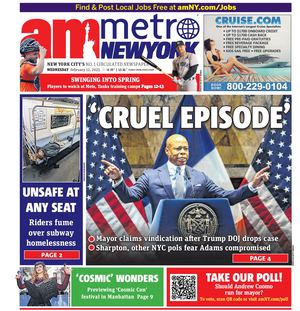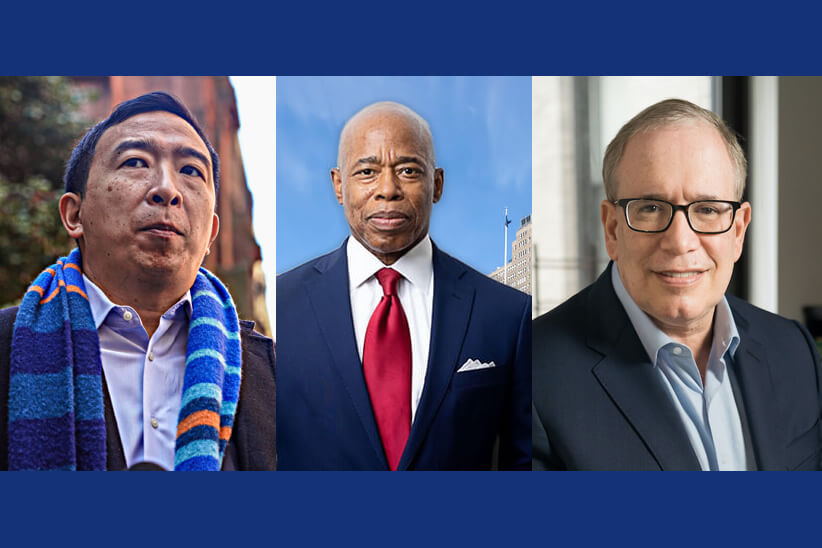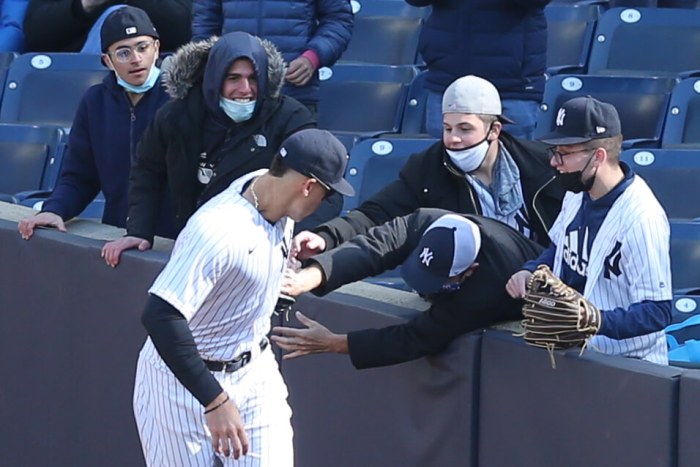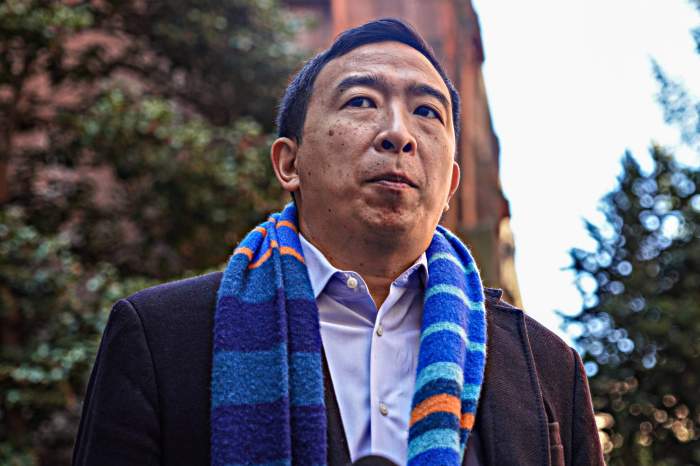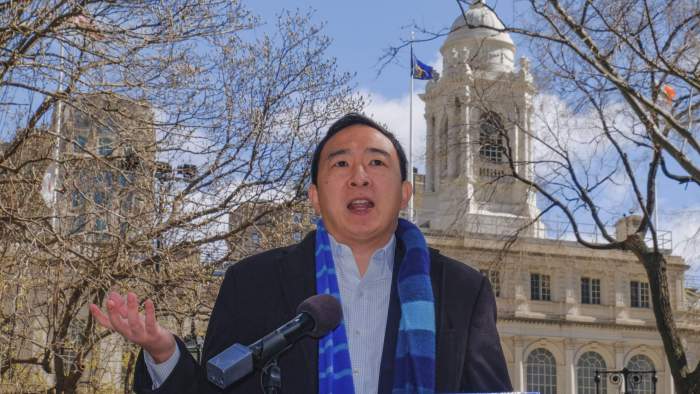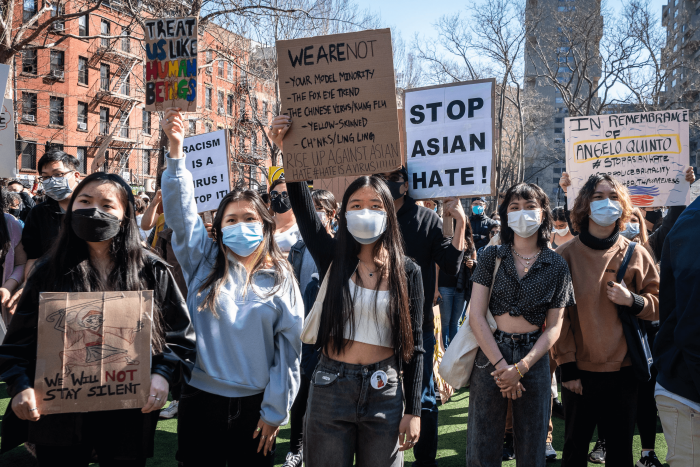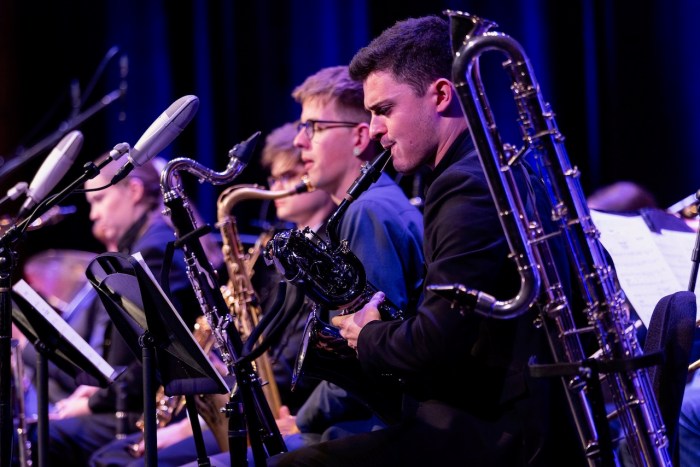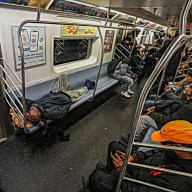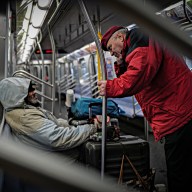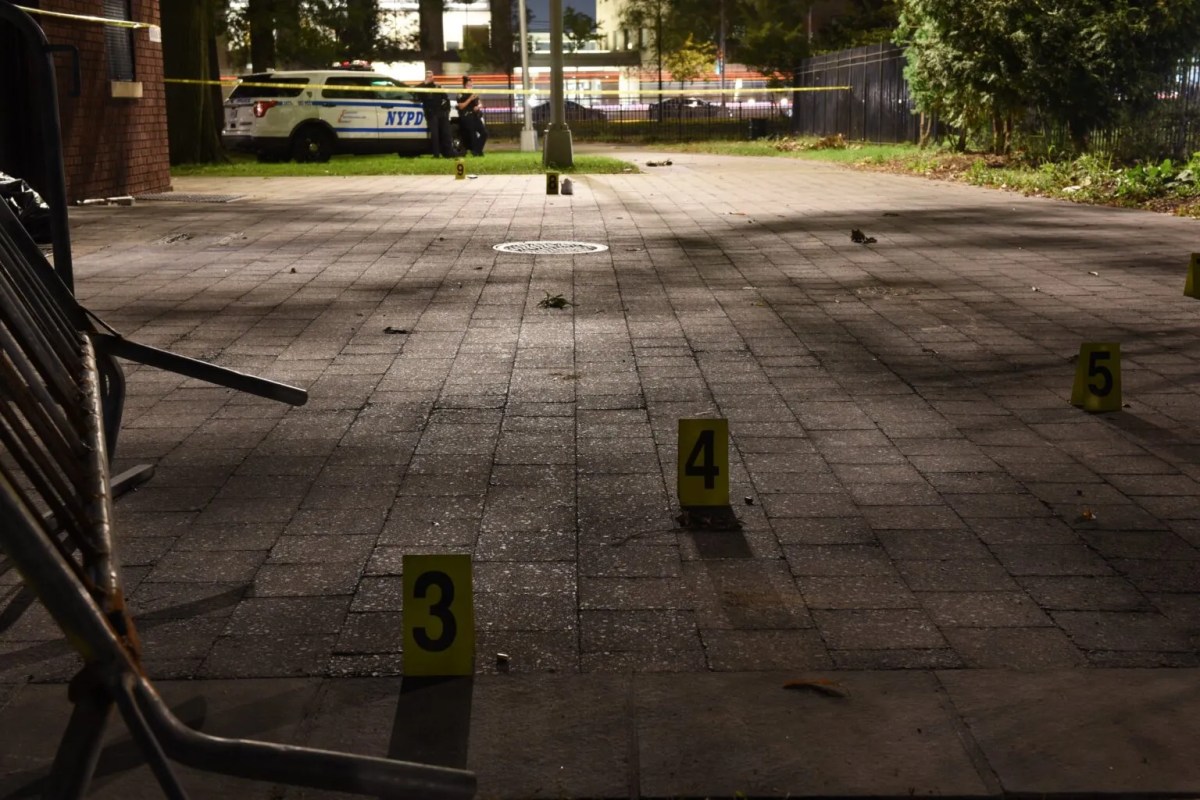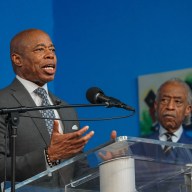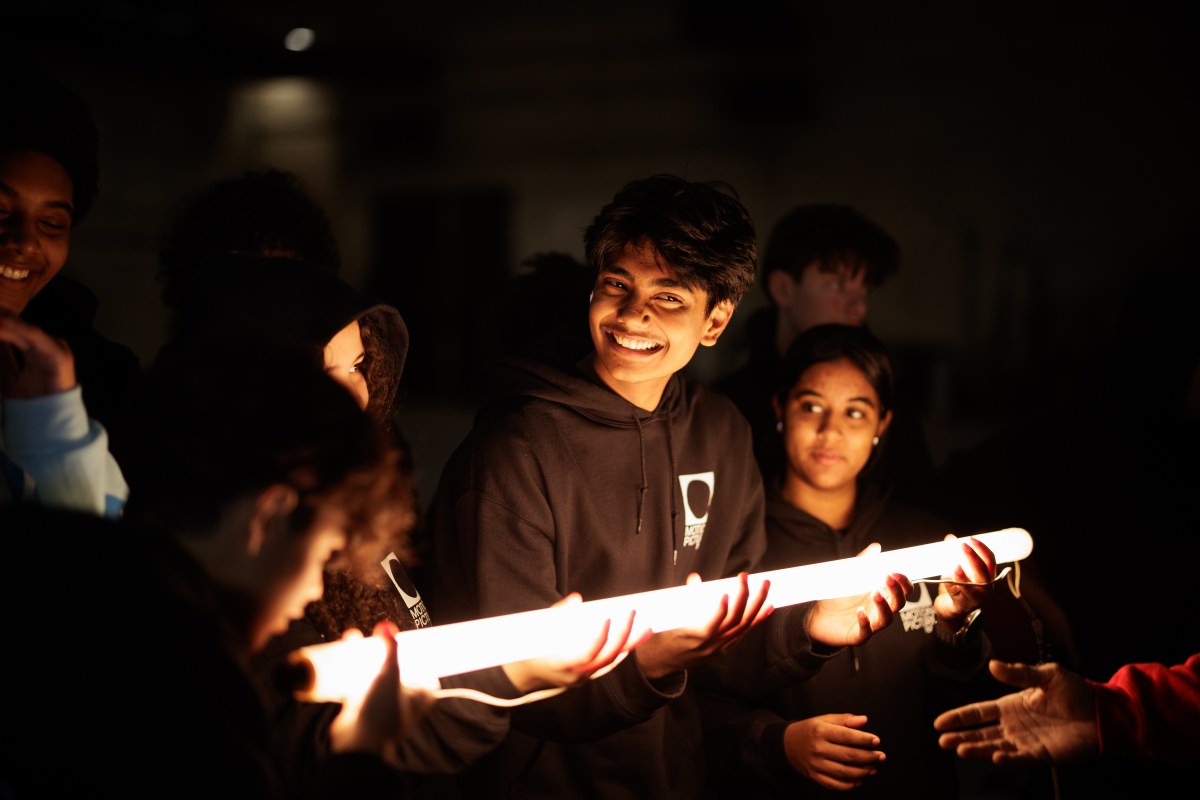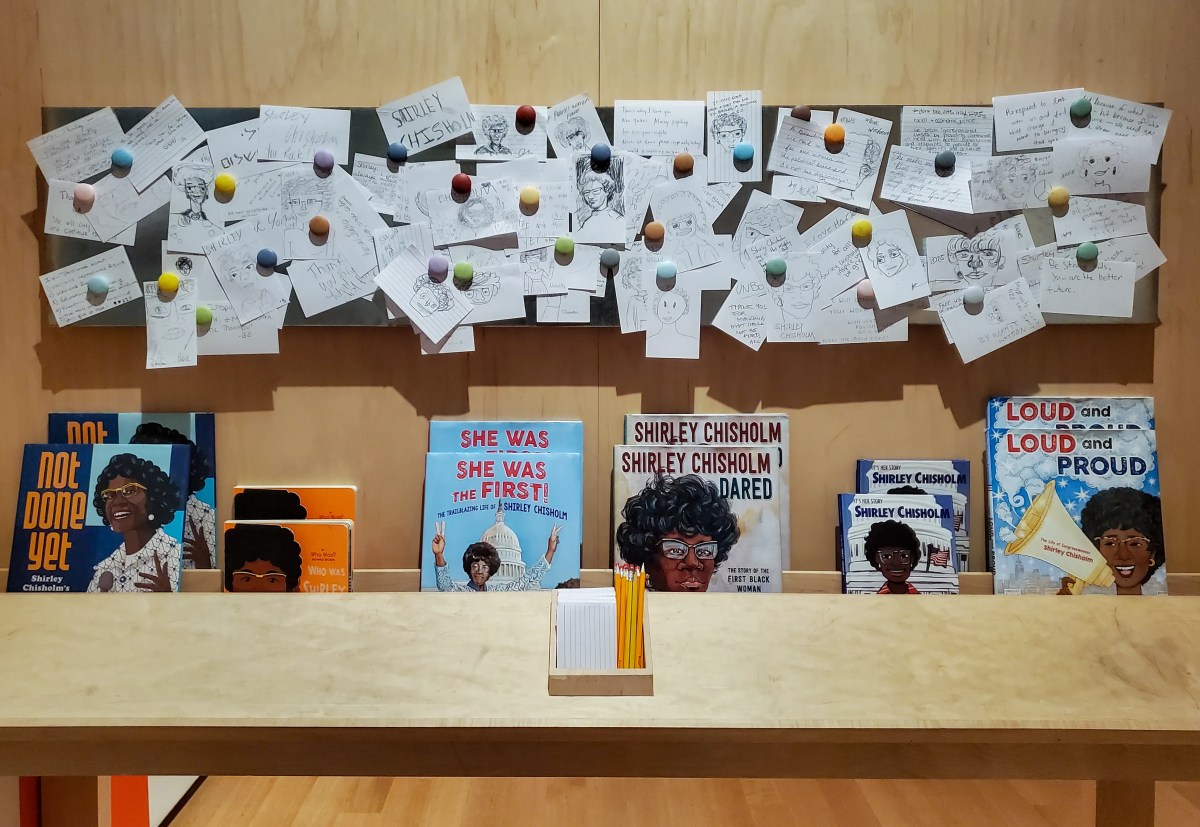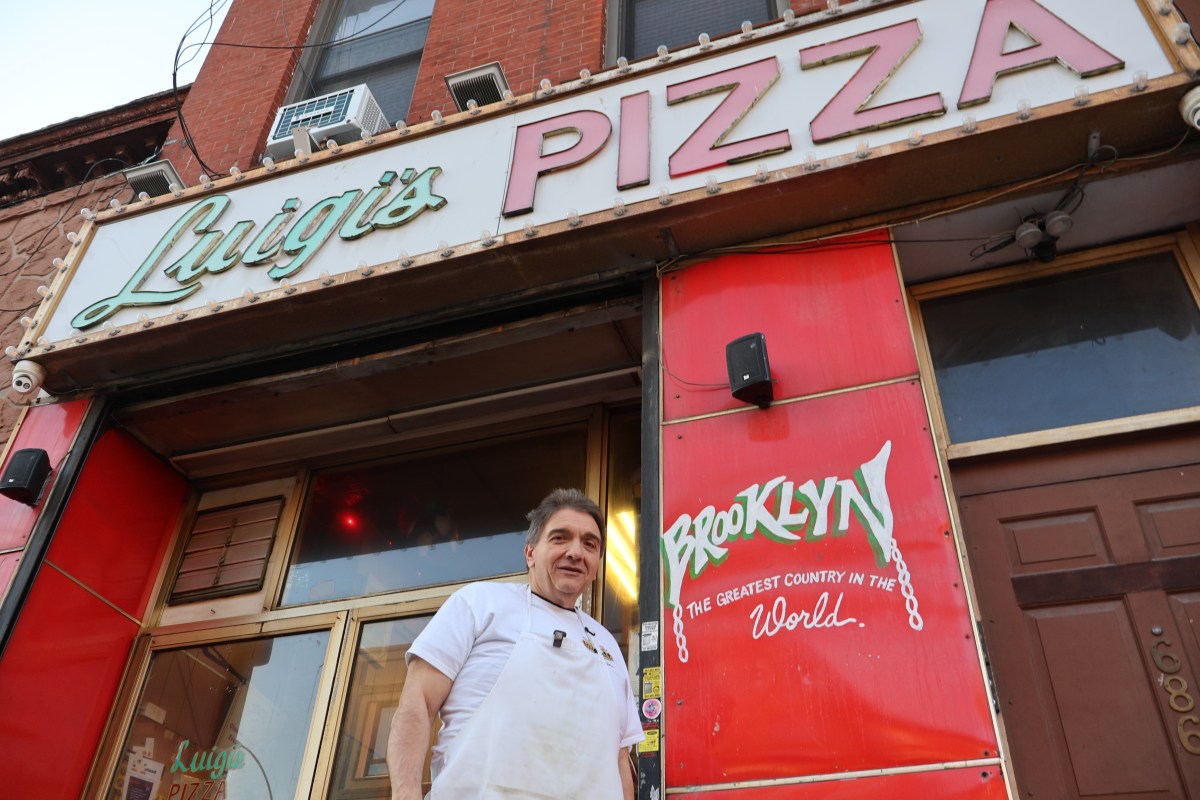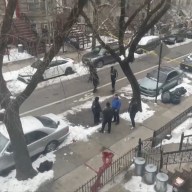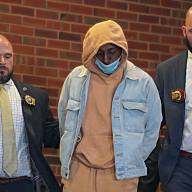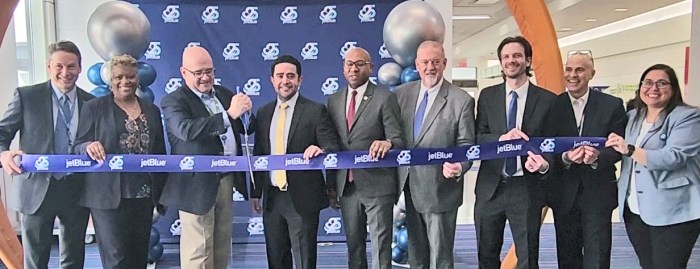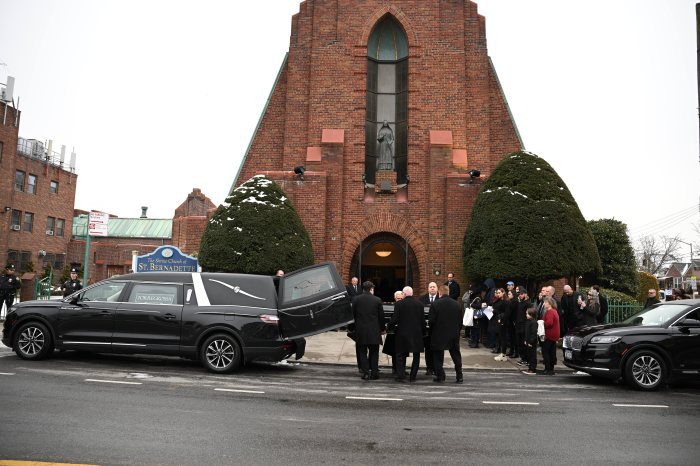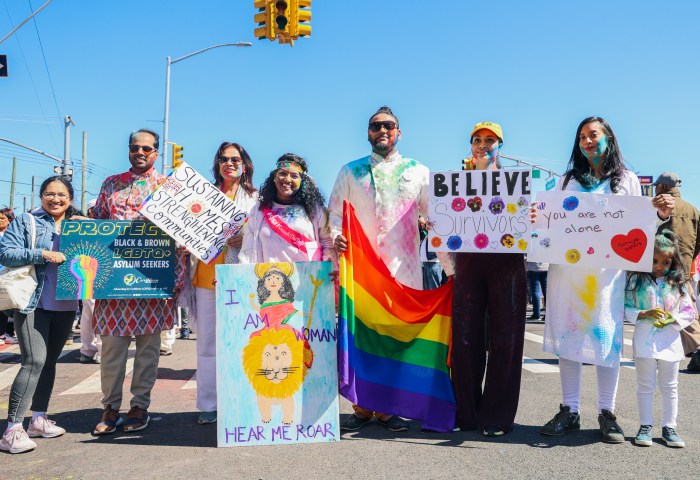Nine weeks away from the decisive Democratic New York City mayoral primary, and voters are shrugging their shoulders on who to vote for, according to a Siena College/AARP poll released Monday.
More than a quarter of registered Democrats polled in the survey (26%) said they either did not know who would they would support, or refused to declare allegiance to a candidate, as their first pick in the June 22 ranked-choice primary.
That’s two points more than the support received for entrepreneur Andrew Yang, who leads the current slate of Democrats on the ballot, getting 24% of the voters’ support for first choice. Yang stands 11 points ahead of his two closest rivals: Brooklyn Borough President Eric Adams and City Comptroller Scott Stringer, both of whom polled at 13% each.
Former Citicorp executive Ray McGuire checks in fourth at 9%, followed by civil rights attorney Maya Wiley at 7%; former Housing and Urban Development Secretary Shaun Donovan at 4%; former Sanitation Commissioner Kathryn Garcia at 3%; and nonprofit executive Dianne Morales at 2%.
Barring unforeseen circumstances, it’s expected that the winner of the Democratic primary — in a city that leans heavily Democratic and has just three Republicans in the 51-seat City Council — will breeze to election in the November general election.
But the high number of undecided/undeclared voters in the poll reflects the primary race’s fluidity — and how unsure voters are regarding who they believe is best fit to lead them the next four years.
The number of voters who either don’t know or refused to say who’d they support in the June 22 primary were particularly high in the Bronx (41%) and Staten Island (39%). Undecided or undeclared voters also outrank all of the candidates in Queens (27%).
Winning over a large number of undecided voters in the three outer boroughs would figure to tip the race in any of the candidate’s favor.
Beyond those figures, Yang is ahead of the field in every borough, including Adams’ home borough of Brooklyn (Yang 25%, Adams 19%, undecided/undeclared 23%) and, more narrowly, in Stringer’s home borough of Manhattan (Yang 22%, Stringer 20%, undecided/undeclared 17%).
Under the ranked-choice voting system, voters get to pick the candidates in the order of their preference, and the ballots are tallied round by round until one candidate has the majority of votes — with candidates with the lowest votes at the end of each round eliminated.
While first-choice uncertainty looms among voters, the question of the voters’ second choice appears even murkier.
No one candidate in the field has more than 20% support for second choice — with Yang and Stringer tied at 16%, followed by Adams at 15%; Donovan and McGuire at 10% each; Wiley at 8%; and Garcia and Morales at 6% each. The poll found that 15% of voters were undecided or undeclared on their second choice.
The question of the voters’ third choice seems to reflect the first choice poll — with a huge number of voters (26%) either undecided or undeclared. Yang leads among third-choice voters at 15%, followed by Adams at 12%; Donovan, Stringer and Wiley at 9% each; McGuire at 8%; Garcia at 7%; and Morales at 6%.
The Siena/AARP poll questioned 531 registered Democratic voters between March 29 and April 8, with a margin of error of +/- 4.3%.
Sliwa far ahead as first GOP choice
Meanwhile, the Republican race for mayor has a clear frontrunner in Guardian Angels founder and conservative radio talk show host Curtis Sliwa.
Out of 129 registered Republicans who participated in the Siena/AARP poll, Sliwa garnered 40% of the support as the voters’ first choice pick — though, like the Democratic primary race, the undecided/undeclared number is higher (44%). Sliwa’s closest rival, civic leader/entrepreneur Fernando Mateo, clocks in at just 6% of Republican voters’ support.
The Guardian Angels’ founder, however, is third among Republican voters asked about their second choice in the race. Of the field, former police officer/firefighter Bill Pepitone, who received the endorsement of the New York City Conservative Party, leads the second choice question with 18%, followed by Mateo at 17% and Sliwa at 10%. Again, the number of undecided/undeclared voters (36%) was quite high.
The Republican Siena/AARP poll has a margin of error of +/- 8.6%.
